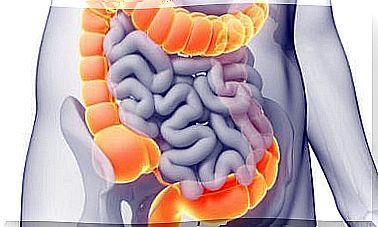The “emotions” Of The Stomach
The stomach is a second brain that influences our mood and regulates our emotions.

Today, the stomach is considered our second brain . It influences our mood and immune system. We find the explanation for this influence in the fact that, of the millions of neurons in the digestive system, some share nerve endings with the brain.
Emotions , whether good or bad, affect our stomach because the brain, which is the organ that controls the mind and the digestive system, among many other functions, are closely connected. This is detailed in this publication from Harvard Medical School, among many others that have dealt with the subject.

The action of the brain in our stomach
The brain controls both stomach and bowel activity through a nerve called the “vagus.” This nerves is number 10 of the cranial nerves and, among many other functions, it is responsible for transmitting information related to sensory and muscular activity, as well as anatomical functions.
On the other hand, diseases of the digestive system such as gastritis, heartburn, abdominal pain or colitis can be aggravated when the person suffers stress, anxiety, nervousness or any emotional disturbance. There are studies that have studied the connection between emotions and digestive functions.

Although the most common is the situation that we have described before, the opposite can happen. By this we mean that some conditions in the digestive system can cause headaches or other conditions in this part of the body.
It must be borne in mind that many of the current pathologies are a reflection of the state of our mental health. Stress is a health problem that affects almost everyone today, so it could be said that it is the epidemic of the 21st century. More and more patients come to the doctor’s office for digestive problems associated with stress.
How can we improve the mind-stomach relationship?
An example of how the stomach affects the mind is when we are hungry. Many people, when they feel hungry, are in a bad mood. However, the opposite happens when we have anxiety, since we usually fill that void with food.
To improve our emotional state, we have several options, such as:
- Do therapy with a psychologist.
- Increase the hours of rest: experts recommend sleeping between 7 and 9 hours a day.
- Avoid situations that cause anxiety or nervousness as much as possible.
- Read self-help books.
- Practicing reiki, yoga or meditation has been proven to be a positive practice for mental health.
- Go to relaxing massage sessions.

Natural medicine
When it comes to digestive health, we have more alternatives. Luckily, we can use various natural remedies to achieve that brain-stomach balance. We tell you how some plants can help us:
- Fennel: you can chew the seeds or make an infusion. Fennel relieves colic, intestinal spasms, and gas. Its effects have been confirmed in patients with irritable bowel.
- Peppermint: the mint infusion relieves indigestion, flatulence, colic, nausea and vomiting. In addition, of course, it is very useful to combat bad breath.
- Chamomile: it is a flower that, prepared as an infusion, helps soothe stomach discomfort, gastrointestinal spasms and gastritis.
- Meadowsweet: according to popular beliefs, in addition to being antacid it also relieves other symptoms such as gas, reflux, peptic ulcers, gastritis and diarrhea. However, little beneficial effects have been proven in the kidneys and livers of animals.
- Melissa: also following traditional medicine, this herb would have calming effects for the stomach. In theory, it helps relieve colic, stomach cramps, gas, and all kinds of stress-related digestive problems.
- Licorice: Popular beliefs indicate that if you prepare an infusion with equal parts of licorice, meadowsweet and chamomile, you can relieve indigestion, gastritis, heartburn and constipation.
- Ginger: certain studies confirm its anti-inflammatory properties , but it is important to clarify that these are in vitro experiments , so their results are not exclusive.









